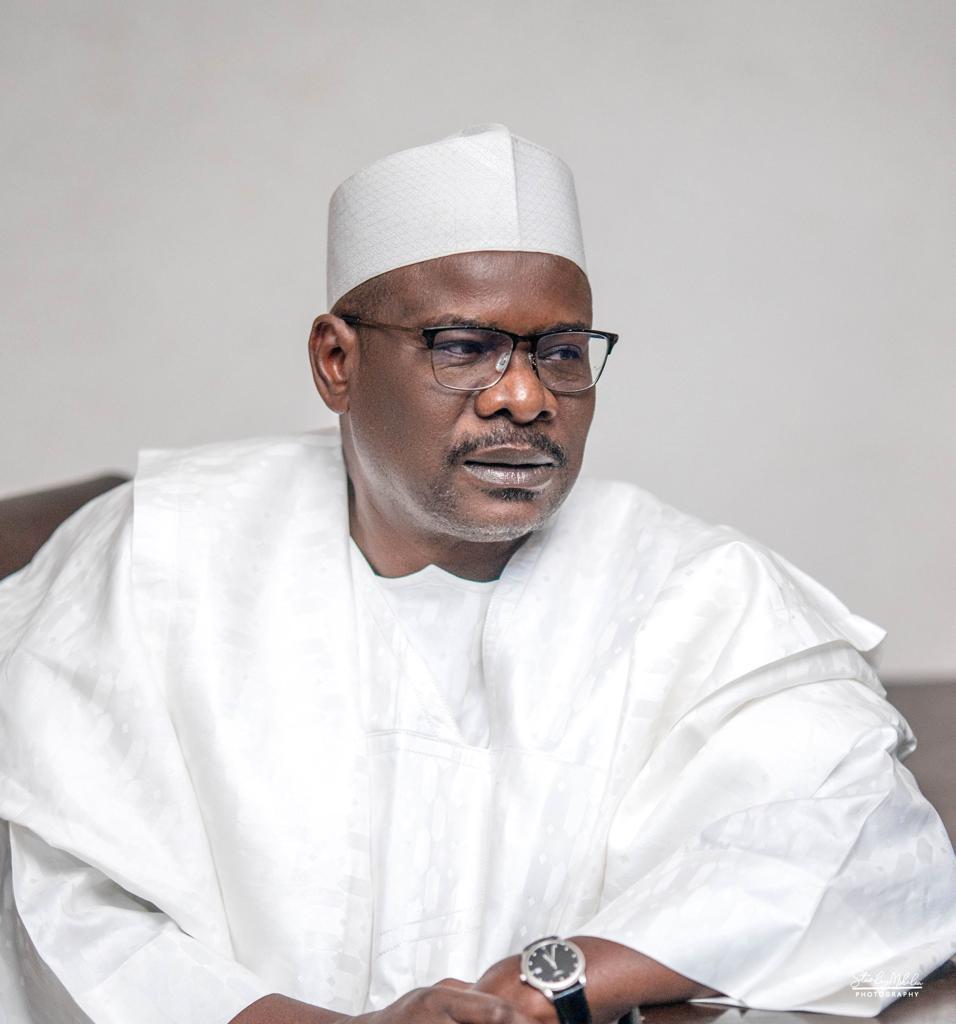POLITICS
Ndume’s Stance On Tinubu Is Self-Serving Blackmail, Says IMPI

The Independent Media and Policy Initiative (IMPI) has described Senate Whip Senator Ali Ndume’s stance on President Bola Tinubu and his administration as self-serving blackmail designed to incite public sentiment.
Ndume recently referred to the administration as a kakistocracy, but the policy analysis group said the Senate Whip’s statement was not factual.
In a policy statement signed by its Chairman, Niyi Akinsiju, the policy analysis group argued that the government’s policies and programmes implemented since taking office have been well thought out, contrary to what Ndume had said in the media.
The statement reads in part: “When such an individual launches an advocacy purportedly aimed at redeeming governance to serve the needs of the general public, it is natural to question the populist undertone of such actions.
“It is in this context that we place Senate Chief Whip Ali Ndume’s recent outburst against President Bola Ahmed Tinubu and his administration on a variety of state issues, the most prominent of which is that the President lacks a quality team of people working with and for him. And that he (the President) had become unapproachable even to his own cabinet members, and by extension, influential state officials such as himself.
“In this case, we believe Ndume’s grumpiness expressed during a live television interview is not only self-serving, but also a form of subterranean blackmail that politicians of his ilk have become adept at using when they want to manipulate the public to support their narrow goals.
“As a body of analysts, we acknowledge Nigeria’s precariousness in, perhaps, all aspects of its existence, but we are of the candid belief that, in order to mitigate the impact of the array of challenges arising from this precarious state, senior officials of state and other critical stakeholders must individually and collectively commit to sterilising emotions and base sentiments in favour of issues and policies in ways that enlighten rather than are vitriolic.”
“So we have to wonder what exactly the Senator was trying to accomplish when he stated on television that people are hungry but the President is unaware of it. That strikes us as quite obtuse and a typical manoeuvre for playing to the gallery.
“In four public announcements over the course of the past year, President Tinubu has sought Nigerians’ understanding of the impact of his policies and promised the implementation of various intervening measures, the most recent of which was the removal of taxes and tariffs on food items to be imported into the country while the country was under a 150-day state of emergency on food affordability.”
IMPI also alluded to the positive outcomes of some of the Tinubu administration’s policies.
“Even though there have been concerns about the Naira’s depreciation, the policy of harmonisation of the foreign exchange windows has proven to be profitable for the country’s manufacturing concerns.
“The weaker naira tripled export sales for manufacturers in the first three months of 2024. The latest financial statements of Unilever Nigeria Plc, Nestlé Nigeria Plc, Okomu Oil Palm Plc, and Dangote Cement Plc show that their combined export revenue increased by 201.1 percent to N387.2 billion during the period, the highest in at least nine years.
“This is up from N128.6 billion in the first quarter of 2023, when their export revenue increased by 41.2%. According to the companies’ statements, Nestlé saw the greatest increase in exports of 275 percent to N964 million in Q1 from N257 million in the same period in 2023, followed by Dangote Cement, which increased by 201.7 percent to N381.3 billion. Okomu Oil Palm and Unilever’s own increased by 194.4 and 62.7 percent, respectively.
“This development is beneficial to the country because it allows manufacturers to obtain more naira in order to source the necessary foreign exchange for production.
“On a year-on-year basis, foreign capital inflows into the country increased by 198.1 percent from $1.13 billion in the first quarter of 2023. This is due to the harmonisation of the foreign exchange rate market, clearance of forex backlogs, naira devaluation, and high interest rates, which sent positive signals to investors and influenced investments during the quarter.”
The group also urged public officials to use their privileged position to build advocacy for government policies rather than pandering to the crowd.
-
CRIME3 years ago
PSC Dismisses DCP Abba Kyari, To Be Prosecuted Over Alleged $1.1m Fraud
-
FEATURED3 years ago
2022 Will Brighten Possibility Of Osinbajo Presidency, Says TPP
-
FEATURED2 years ago
Buhari’s Ministers, CEOs Should Be Held Accountable Along With Emefiele, Says Timi Frank
-
BUSINESS & ECONOMY2 years ago
Oyedemi Reigns As 2023’s Real Estate Humanitarian Of The Year
-
SPORTS1 year ago
BREAKING: Jürgen Klopp Quits Liverpool As Manager At End Of Season
-
SPORTS2 years ago
Could Liverpool Afford Kylian Mbappe For €200 million? Wages, Transfer Fee
-
ENTERTAINMENT2 years ago
Veteran Nigerian Musician, Basil Akalonu Dies At 72
-
FEATURED2 years ago
Tribunal Judgement: Peter Obi Warns Of Vanishing Electoral Jurisprudence, Heads To Supreme Court
-
BUSINESS & ECONOMY2 years ago
Oyedemi Bags ‘Next Bulls Award’ As BusinessDay Celebrates Top 25 CEOs/ Business Leaders
-
FEATURED3 years ago
2023 Presidency: South East PDP Aspirants Unite, Demand Party Ticket For Zone



































